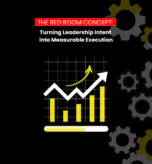Hydroponics Boom in Gujarat: A Market Research Case Study for New Businesses
Stratefix Consulting, a firm specializing in market research and implementation strategies, was approached by a client in Ahmedabad seeking to establish a hydroponics plant.
The client required insights into suitable crops, investment costs, return on investment (ROI), and overall project feasibility.
Our experts analysed the key factors, delivered detailed report helping the client establish the plant alongside a roadmap in driving growth and the potential benefits for his new business idea.
Market Research Methodology
This task was no walk in the park! We had to interview multiple stakeholders for the Market research project to make sure we met the client’s needs. Stratefix adopted a multi-pronged approach
● Primary Research :The team conducted interviews with various stakeholders, including:
- Existing hydroponics farm owners with similar facilities
- Technology suppliers and sellers
- Crop brokers and traders
- Buyers – Horeca (hotels, restaurants, and catering) establishments
- End Consumers
● Secondary Research: This involved studying existing information on hydroponics production, suitable crops, market size, and industry trends.
Our Findings from the Research
We identified several factors which can contribute to the success of this hydroponics plant in Ahmedabad, Gujarat:
- Water Scarcity: Hydroponics plant uses significantly less water compared to traditional soil-based farming, making it a sustainable solution.
- High-Value Crops: Hydroponics enables the cultivation of exotic vegetables and fruits like strawberries, green garlic, and gerbera, fetching premium prices in the market.
- Superior Quality: This system allows precise control over nutrient delivery, leading to higher-quality produce with better shelf life.
- Space Optimization: It requires minimal land, making it suitable for urban areas and regions with limited arable land.
- Government Support: The Gujarat government actively encourages the adoption of hydroponics by providing training and promoting urban farming initiatives
Based on the research findings, Stratefix provided the client with:
● Suitable Crop Recommendations: Analysis of market demand, profitability, and shelf life helped identify the most viable crops for the client’s location.
● Investment & ROI Assessment: An estimate of initial setup costs, operational expenses, and potential revenue streams was provided to determine project feasibility and ROI
Client Deliverables and Project Feasibility Analysis
Market Research Results
Stratefix Consulting’s research provided the client with crucial information to set up their hydroponics plant:
- Top 10 Vegetables:
Based on market demand, profitability, and shelf life, our research suggested the following potential crops:
- Leafy Greens: Lettuce (varieties like Romaine, Butterhead), Spinach, Kale
- Herbs: Basil (Genovese, Thai), Mint, Parsley, Chives
- Fruits: Strawberries, Cherry Tomatoes
For Example
● Lettuce:
- Market Price (Ahmedabad): ₹30-40 per kg (wholesale)
- Shelf Life: 10-14 days (refrigerated)
2. Rates and Margins
Stakeholder margins vary, but here’s a general idea:
- Producer: 20-30% profit margin
- Broker: 5-10% commission on sales
- Horeca: 2-3 times the purchase price (hotel, restaurant and catering)
3. Shelf Life
We found out that Hydroponic vegetables generally have a longer shelf life due to controlled environments. Here are indicative examples:
- Leafy greens: 10-14 days (refrigerated)
- Herbs: 7-10 days (refrigerated)
- Strawberries: 3-5 days (refrigerated)
4. Supply Chain Mechanism: The supply chain involved
- Producer: Grows and harvests the vegetables.
- Broker: Acts as a middleman, connecting producers with buyers.
- Horeca: Hotels, restaurants, and catering establishments purchase vegetables.
- Consumers: End consumers enjoy the fresh produce.
5. Project Feasibility:
Considering the above research findings:
- Demand: High demand for fresh, high-quality vegetables in urban areas.
- Production: Hydroponics allows consistent yields throughout the year.
- Profitability: Potential for good profit margins with premium crops.
- Detailed Cost Analysis: Initial setup (equipment, seeds, nutrients), operational expenses (labor, electricity).
- Production Planning: Crop selection based on market research and expertise.
- Sales Strategy: Identifying target markets (restaurants, supermarkets) and establishing distribution channels.
Client ROI and Breakeven Point
- Estimated Investment: Initial setup costs including infrastructure (e.g., Rs. 5 lakh for a small-scale system), seeds, nutrients, and operational expenses. We generated a detailed analysis report outlining the range based on the chosen technology, scale of operation, and crop selection.
- Projected Revenue: Considering factors like chosen crops, market demand, and achievable yield (e.g., 2 kg/m2 per harvest cycle for lettuce). We provided detailed analysis backed with market research data on crop prices and potential sales volume.
- Profitability Analysis: Considering operational costs, margins, and estimated sales. Projected income report based on chosen crops, their yield, and market prices.
The client received
- A feasibility report: Indicating the project’s potential based on market research and initial estimates.
- Data-driven recommendations: Guiding crop selection, investment planning, and initial steps towards establishing the business.
- Detailed Financial Planning: Develop a comprehensive business plan with projected costs, revenue, and profitability.
- Securing Funding: Finding financing options like loans or grants if necessary.
- Obtaining Permits and Licenses: Ensure compliance with local regulations for operating a hydroponics farm.
Leveraging the insights gained from market research and in-depth interviews, the client increased their chances of establishing a successful hydroponics business.
The has witnessed a turnover of 40 lakhs, with 90% of the harvested stems exported. He was able to focus on high-value crops, mitigating the risks associated with poor soil conditions.
Hydroponics presents a promising avenue for SMEs and MSMEs in Gujarat and other regions facing similar challenges. By leveraging market research and data analysis, entrepreneurs can make informed decisions about crop selection, investment strategies, and overall project feasibility.
Ready to embark on your hydroponics journey?
Contact Stratefix Consulting today for personalized strategies and expert guidance. Revolutionize your farming practices and join us in leading the way to a sustainable and profitable future.
Note: This is a Real-world project where we demonstrated the required additional in-depth
research and analysis. The information provided does not constitute financial advice. Reach out to Stratefix Consulting for detailed market research and reports.







